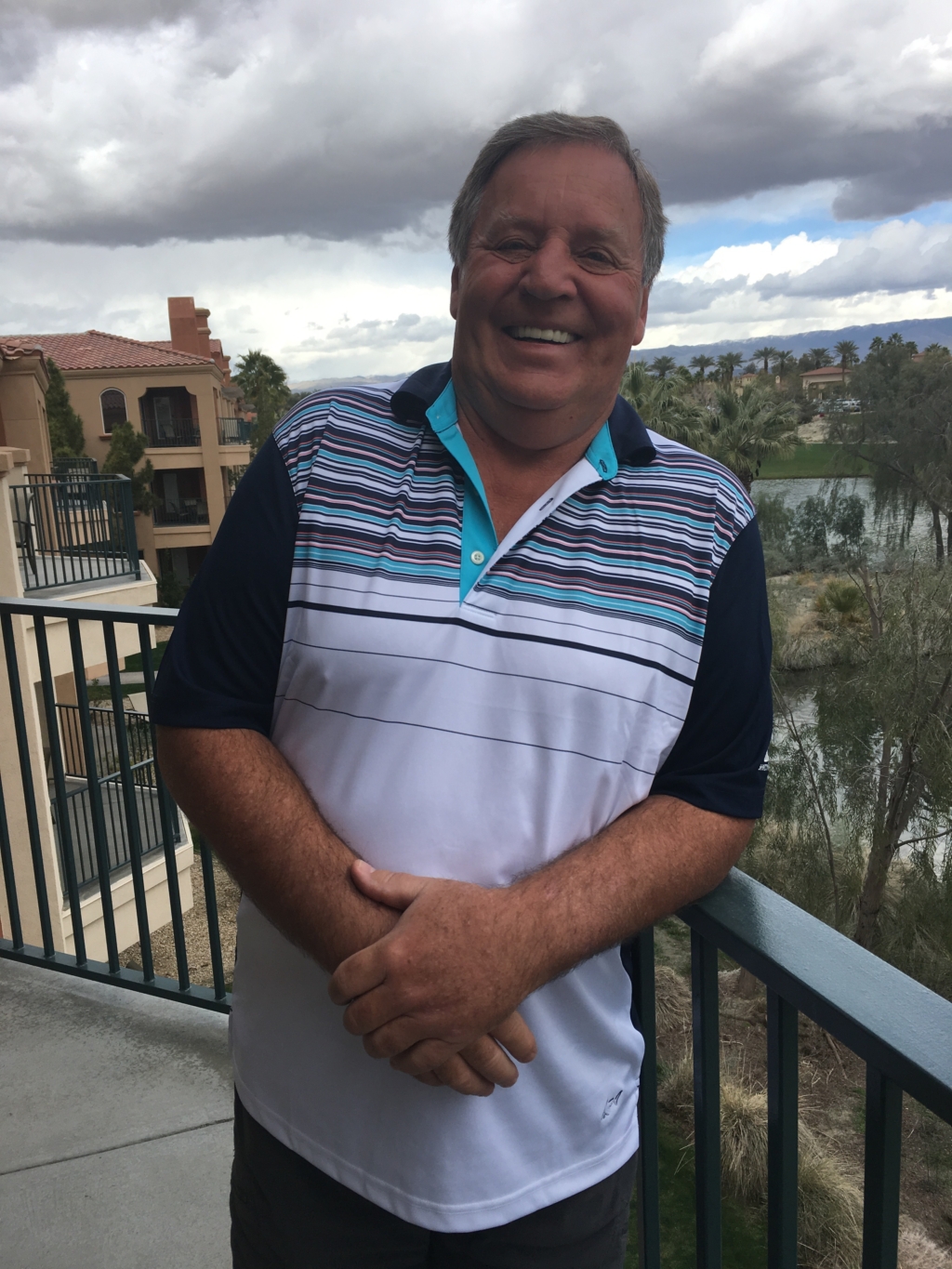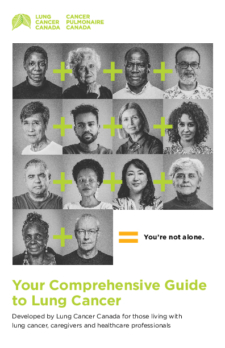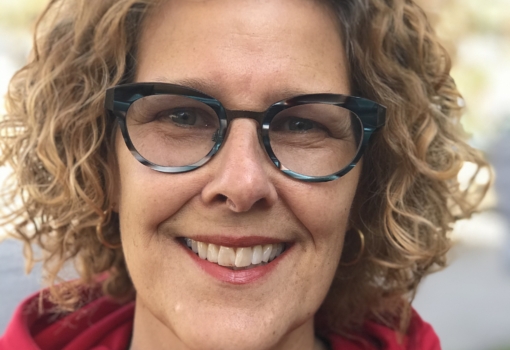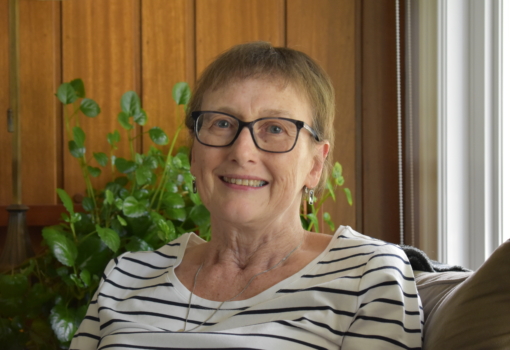
My name is Terry Morey and I am 73 years of age. I live in Cochrane, Alberta, which is a small community just outside of Calgary, Alberta. I have Stage IV non-small cell adenocarcinoma of the lungs.
My journey through cancer land began in November 2013. I developed what I thought was a cold and phoned my doctor as colds always seemed to go to my chest. He prescribed the usual antibiotics and I began taking them on a Friday. By Sunday, I was not feeling any better. Although it was quite cold I thought perhaps a walk in the fresh air would perk me up. At the time we lived on an acreage just outside Cochrane and our back pasture has a small incline to it. You would not describe it as a hill. Normally, it was no problem for me to walk up the incline but that day, I struggled badly. I couldn’t catch my breath so I turned around and went back to the house. Of course, it was the weekend so couldn’t get a hold of my doctor. I probably should have gone to emergency but I just wanted to lie down.
On Monday, I called the doctor’s office and got an appointment on Tuesday. My doctor listened to my chest but couldn’t hear a problem. However, to be safe, he sent me for an X-ray and said he’d call me if there was a problem. I was at work on Wednesday when he called and told me I had to go straight to emergency at the Foothills Hospital because there was so much fluid on my lower left lung it was in danger of collapse. I actually drove myself to emergency! Crazy! Once there the pulmonary doctor drained two litres of fluid from my left lung. I was given a CT scan and then sent home. I drove myself home! I even went back to work on Thursday and Friday. I felt fine.
The next week, I met with the pulmonary doctors again and that’s when things got a little tough. They told me that I most likely had lung cancer and that I would need to see an oncologist to decide on treatment. Lung cancer!!!! Nope, couldn’t be. I didn’t smoke, I lead a fairly healthy lifestyle, so, nope, they’d got that wrong. For sure! However, the following week my wife, son, daughter and myself met with an oncologist at the Tom Baker Cancer Centre. He confirmed the lung cancer diagnosis and when asked, told me I most likely had 6 to 18 months to live. My only option for treatment was chemotherapy, which I began in December 2013. I received a cocktail of cisplatin and gemcitabine every three weeks. I have to confess it was pretty tough. Although the anti nausea drugs did a great job, I felt pretty miserable for about 10 days out of every three-week cycle. I’d just start to feel better and I was back in the treatment chair. Thank God for the winter Olympics of 2014. I sat in my recliner chair placed in front of our fireplace and watched the games all day. I was able to take 5 out of 6 of the treatments. We had to stop as my white blood cells and my kidneys were becoming compromised by the chemotherapy. The treatment did reduce some of my tumours so it did work for a while but after about a 5-month relief from chemotherapy they started to grow again. My next treatment was another chemotherapy drug pemetrexed. This wasn’t as hard on my system as my first cocktail but in 2015 I had to stop treatment again.
I do feel I live a full life. If I have any advice to a newly diagnosed lung cancer patient it would be “Never, never give up hope. There is always hope.” “
I was then offered a chance to enter a clinical trial for the immunotherapy drug Keytruda. In order to be accepted into the trial, a larger tumour sample was needed so I underwent a bronchoscopy. A meeting was scheduled with my oncologist to discuss the results of the tumour sample and that’s when I got the “good” news. My tumour sample showed I had the genetic mutation ALK+. This meant I would not be enrolling in the clinical trial and would begin taking the targeted therapy pill crizotinib. Compared to chemotherapy taking my two crizotinib pills a day was easy. The side effects were minimal. I developed swelling in my hands and feet and had definite digestive issues but otherwise I felt as though this pill had given me my life back. I was told most people only got 10 months out of crizotinib. I got four years, but unfortunately at the end of 2019 we could see tumour growth again. So in March 2020, I was put on another TKI called alectinib. So far, I tolerate this pill quite well, but it does cause extreme fatigue and so my life is a lot more limited now. I used to be able to walk much longer distances. These days a short wander around our community pond is all I can manage. Fairly normal everyday activities like shovelling a sidewalk in the morning means I have to rest in the afternoon.
I like to dream of taking trips back to Europe and Britain which we’ve visited often but the reality is I would not have the energy for the tourist activities I know I would want to do. But....I can still dream and at least I’ve had 7 years to watch my grandchildren be born, grow up, graduate high school, enrol in pre-med studies, play hockey and take some wonderful beach holidays together. I have many, many memories to comfort me these days. And all of those precious grandchildren will have memories of their Poppa. One of my worst fears upon diagnosis was that my younger grandchildren would not remember me.
During these 7 years of living with cancer I have been a fortunate man. My family, friends and church community have been so supportive of me. Honestly, I think that a caring support system has gone a long way to helping me cope with my diagnosis. My son’s eldest boy, Cade, held a fundraiser for Lung Cancer Research at the University of Calgary on his 9th birthday and raised $400.00. This has become the subject of a video made by the University of Calgary, Energize Campaign Project. I am so proud of him.
I am by nature, a pretty optimistic guy, and when I was diagnosed I vowed that whatever life I was given I would enjoy to the fullest. And despite a regimen of a CT scan every three months and a brain MRI every 6 months even during this pandemic, I do feel I live a full life. If I have any advice to a newly diagnosed lung cancer patient it would be “Never, never give up hope. There is always hope.”




